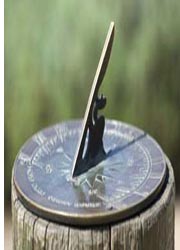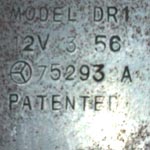Why You Should Do a Patent Search
It is not necessary to conduct a patent search before you file any applications to get a patent.
Remember, however, that to be a valid patent, what you claim must be "new" - i.e. it must not be an obvious way of solving a problem, and must incorporate some inventive step.

It follows that if someone else has thought of the idea before you - and believe it or not, there is always this probability - and patented it, or even put it into use, or described it in a publication, it will not be "new" in your hands. Then, it is what is referred to as part of the prior art.
So, ideally, you want to know this before getting into the whole expensive process to patent an invention.
If your invention has potential, you should do a "prior art" search, preferably before you file the complete patent application or do any of the other
Steps in Patenting: How to Get a Patent
Doing a patent search can also show you how other applications are structured, especially if you want to write your own application.
Obviously finding out whether you idea is with certainty 100% "new" is virtually impossible. Generally, if you are involved in a particular field, you will know the field. To try and find out whether there is any prior art which may anticipate your patent, your search can include:
- Trade and technical publications
- Files at Patent Offices
- Computer databases at Patent Offices
Where to Start Your Patent Search
Patent lawyers can point you in the right direction to do your searches. Generally, the internet is a good starting point.
The Google Patent Search provides a user friendly way to search U.S. patents.
Search all the keywords that might lead to your invention, but remember not to disclose your idea in the process, particularly if you have not yet secured the provisional protection.

If you quickly come up with a relevant existing patent, you know to go back to the drawing board.
The drawback of this kind of patent search is that you may search for "faucet" and miss relevant patents described as "taps" or worse, "flow regulating devices". Patents prior to 1976 are not available in text form (in the US) and so cannot be found by keyword searches!
A Bit of Caution About Searching For Patents
You should not rely on only one method of searching!
After your preliminary search(es) you should consider the services of an experienced patent attorney to do further searching, particularly of previous patents.
After all, he is going to have to describe in the complete specification (for your patent) why your idea is an inventive step on the state of art, if you will not be doing the whole patenting process yourself.
Please Note: On our Intellectual Property Resources page we've provided links to the patent offices in various countries to:
- Do your patent search
- Find out about the fees involved, and
- Find appropriate forms and specific advice
Doing a patent search can be quite difficult. Once you've done your own searches to verify as far as possible that your invention may qualify for a patent, it is advisable to consult with a patent law firm to refine your search.
You are here:




